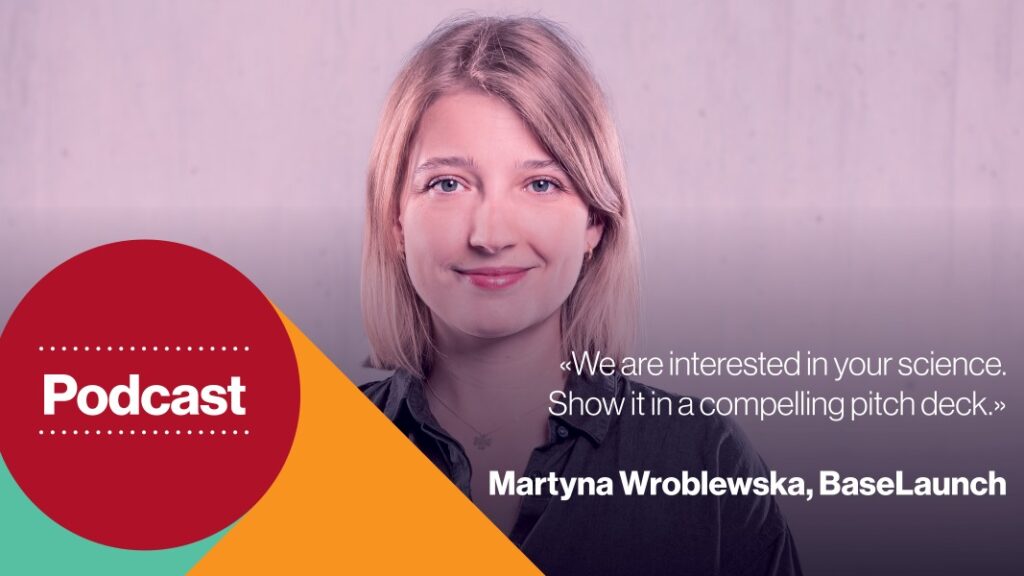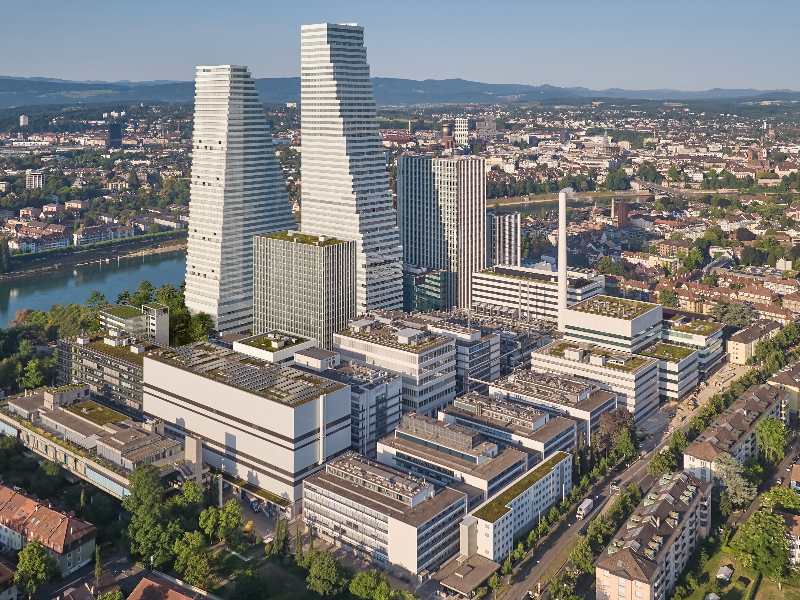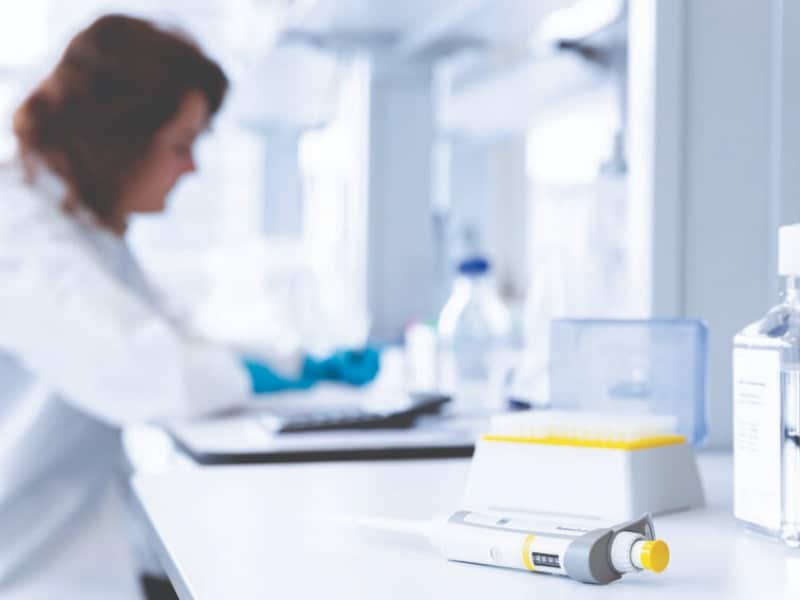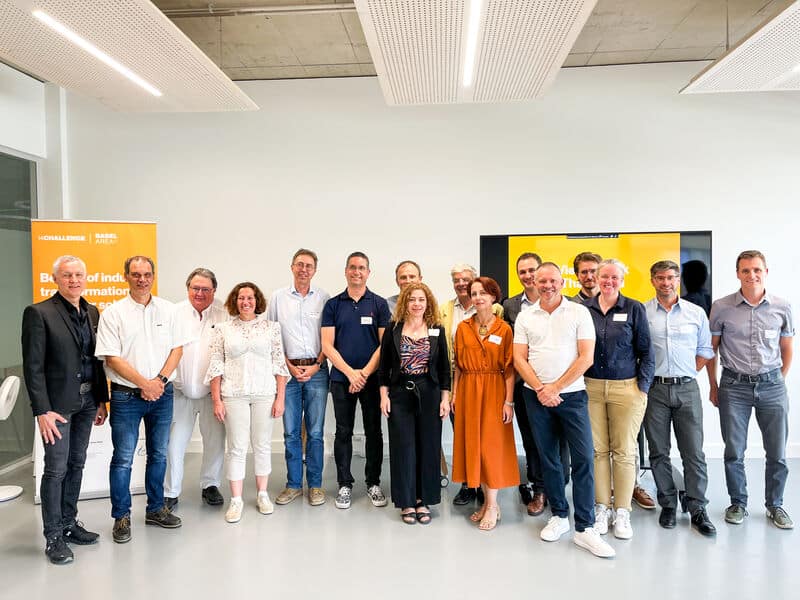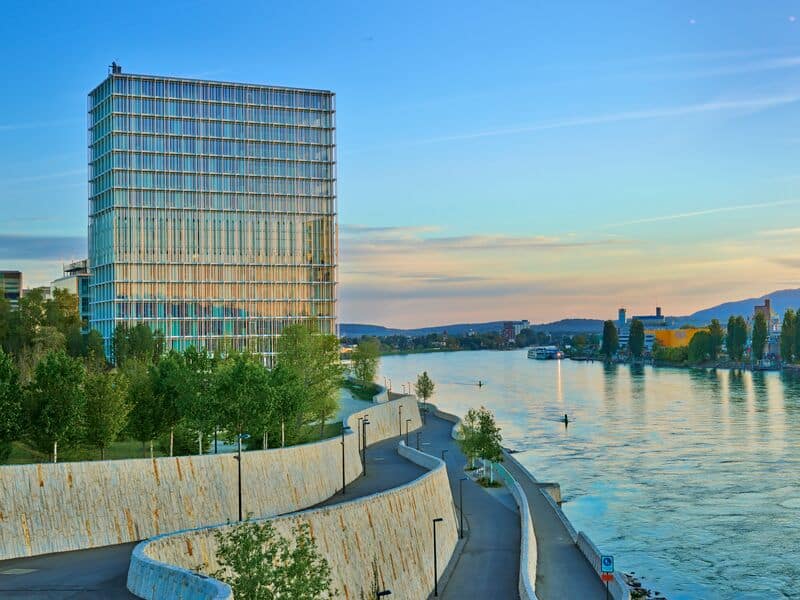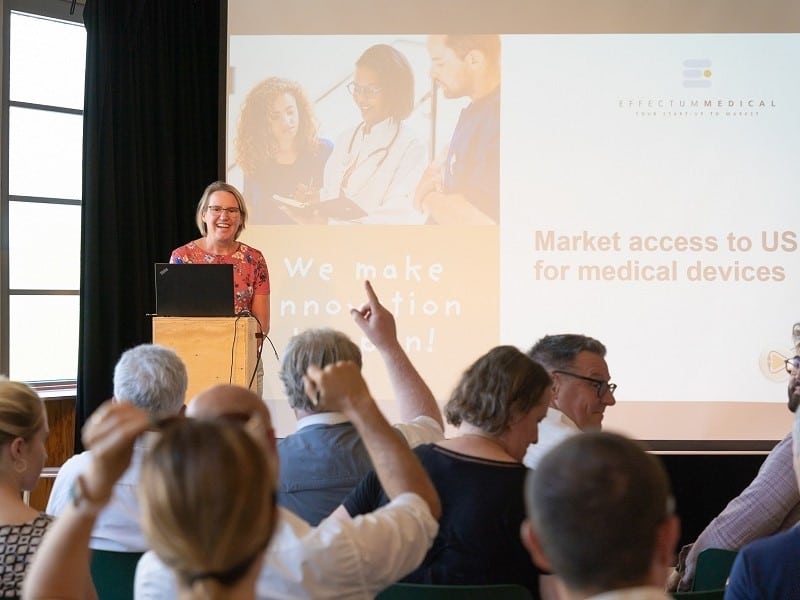
| News
“The first steps are slow and then suddenly things start rolling”
02.12.2019
After more than 25 years in the pharma business, Andreas Katopodis founded the biotech company Anaveon together with Professor Onur Boyman. In 2019, the startup raised 35 million CHF and will shortly complete the establishment of its new laboratory as the company progresses its products towards clinical development. With a lot of optimistic realism, Andreas takes stock.

Andreas Katopodis (img: Pino Covino)
BaselArea.swiss: Andreas, how is the startup going?
Andreas Katopodis: The labs finally look like labs, and if everything goes well, we should be conducting experiments by December.
You were director of the transplantation team at Novartis for a long time. Now you are CEO of a startup developing IL-2 complexes to treat cancer. How did that journey start?
I am a molecular biologist by training but have always been fascinated by immunology. When I started working, Cyclosporine had been in the market for some years, which enabled solid organ transplantation and significantly extended patient life expectancy. This was fantastic! At Novartis, I was responsible for identifying new targets for autoimmune diseases, while also working to achieve transplantation tolerance. Immunological tolerance makes it possible to receive and keep an organ without the need for continuous medication throughout a patient’s life. The opposite of tolerance is rejection. These types of biological pathways are relevant to rejecting a tumor. So we were thinking how we could use our expertise in transplantation tolerance to reject tumors instead. We got together with Onur Boyman from the University of Zurich whose research is focused on cytokines and their role in the regulation of immunity.
Please talk us through the science behind it.
The immune system has both effector and tolerance mechanisms. The effectors prime immunity against anything the body sees as foreign – be it viruses, bacteria or a kidney from another person. An acceptance mechanism on the other hand passivates the immune response. It is Yin and Yang: every action leads to an opposite reaction that keeps the system in balance. The research on IL-2 undertaken in Onur’s lab resulted in antibodies which could modulate effector mechanisms. We then used Novartis’ expertise to develop these antibodies into new drugs that would be amenable for cancer treatment. Unfortunately, for strategic reasons, in 2016 Novartis stopped the project.
What came after Novartis had stopped the project?
The short version: Onur and I were passionate about what we were doing and licensed it out of Novartis and the University of Zurich. We started a new company, Anaveon, and are focused on bringing the asset into clinical testing.
Anaveon is developing therapeutics based on the fusion of an antibody to IL-2. How complicated is that?
What we are doing at Anaveon is not exotic science – it’s also not routine and we look to mitigate risk where we can. We know all the ingredients: IL-2, T-cells and NK cells but what we don’t know is exactly how they work in the treatment of cancer.
How hard was it to get a project out of Novartis?
It was straightforward, but it took a long time. Novartis has a clear and professional process for the licensing of later-stage assets discontinued due to strategic reasons but no such process exists for early stage assets and I think that’s why it took us a little longer.
Were you directly involved in negotiating the licensing deal with Novartis?
No. To make the process fair for everybody, Onur worked with the Novartis out-licensing team and I did the same with the team at the University of Zurich. In these negotiations one must have a clear focus, a lot of patience, and an attitude that only accepts success. In the end, we got the asset at terms that all parties were satisfied with.
Now, you are an entrepreneur. How conscious of a decision was that?
Life was great at Novartis because we always had project after interesting project and many resources to pursue them. But what drives most people in my business is actually seeing the result of your hypothesis translated into new treatments for patients. I worked in Transplantation Research for many years. There’s nothing more incredible than seeing a person on dialysis getting a new kidney. Cancer is something that we are all too familiar with. Founding Anaveon for me was a bigger and more interesting calling. So, it was not so much entrepreneurship, but following this concept that I believe in and seeing what it does in the clinic.
How optimistic are you about the outcome?
As we all know, there is a high attrition rate in clinical development, but we have lived and breathed this science for a long time and believe in the potential of this project. The early progress went exceptionally fast and it would be an incredible waste not to test it in the clinic.
You got funding from the University of Zurich Life Sciences fund and BaseLaunch. In 2019, you successfully concluded a Series A financing round led by the British life sciences fund Syncona. The Novartis Venture Fund joined as well: You raised 35 million CHF. That is a great achievement.
I want to go back a little bit at this point… In the drug development process, there are so called compound decision points. You first need to establish that your target or the mode of action is relevant to the disease. It’s a proof of concept of your target. You must then decide, how you are going to pharmacologically interfere with that target. This second part is time and resource consuming because you are using different compounds, different antibodies, which can take years to develop and test. We were lucky that we had gotten to the compound decision point already, meaning that lead compounds were already shortlisted. We knew that one of them would work. When we founded Anaveon, we were ready to start the actual manufacturing and testing of the lead compounds.
Which factors further facilitated the funding process?
We initially received 1 million CHF from the University of Zurich Life Sciences fund, which allowed us to start the early manufacturing steps. Additionally, BaseLaunch supported us, first with a non-dilutive grant and then with a loan. Anja König, the Global Head of the Novartis Venture Fund, was pivotal in helping us attract financing. With her guidance, we didn’t oversell, we didn’t knock on too many doors, and we were lucky to get term sheets within less than 6 months. I think it was a combination of being very realistic and showing a balanced view to the investors. The bottom line is: Can you show that you have a good concept? Do you believe in the concept? Can you make other people believe in that concept and in you and your team?
You work together with professional VC funds. What is your experience so far?
I personally prefer professional investors. They are able to judge the validity of your project and to challenge and guide you. They are often more expensive than private angel investors, but I believe that is the price you pay for experienced, professional help. My advice to startups is to try and engage early on with professional investors. Of course, they are more demanding. Usually they are like us scientists in the sense that they want their imagination to be caught about something exciting. The best ones want to get in and help build the company, and I think that’s what Anaveon has got right now.
Often, startups struggle with defining the valuation, especially at such an early stage.
We also struggled with that issue. It is difficult to gauge what a good price is. I don’t think building a successful company is about getting the highest valuation. Instead, you want to find the best partners. Some of these funds are very big, so a lot depends on the actual people that are involved. During the due diligence process, there is a lot of time to get to know all the people involved. In our case, we went ahead with the investors we felt most comfortable with. I try to do that in general in my life as well. That is how I put our team together.
How far will you get with 35 million CHF?
We will get a first answer in the clinic. With 35 million CHF we can do phase I studies, but we will need to raise additional funds as we progress though the clinic. At some point we might consider identifying one or more partners who will be able to push us through combination therapy studies and that decision will be something that we will work on as a team and with our investors. We have the vision of increasing our footprint into other areas of cytokines.
How is the competition?
The competition in the next generation IL-2 field is ahead of us. Yet, we are convinced that we have a best-in-class therapy. Physicians, patients and payors will use the drug that provides the best chance for survival or, potentially a cure, instead of going for the second best. Oncology is a big field and there’s room for another player using the same mode of action as long as they can differentiate their drug. We are lucky because we have investors who will be able to help us move along fast. And it is like with most other things in life: The first steps are slow and then suddenly things start rolling.
What was the biggest challenge so far?
One challenge I had was finding labs and getting them organized. It’s the bricks and mortar of the biotechnology business. The major challenge was to put together an organization. Basel is excellent in terms of talent pool with pharma experience. Of course, it is different from US biotech hubs where you bump into another opportunity just as you step out the door of the last one. People here are less mobile. Meanwhile, more people are willing to take the gamble. The beauty about a small startup is that you can capture both the hearts and the minds of people, whereas in pharma they get people’s minds but not so much their hearts. In our business with a small company, teams are very lean. Everybody is extremely important and critical. They also appreciate other advantages like making fast decisions.
What was crucial for you in forming your team?
Technical excellence is crucial, but not sufficient. The team members have to take the risk willingly, not just because they don’t have anything else to do. I was looking for people that have a vision. We had openings advertised in various channels, but as it turns out we never hired any person through advertisements. Until now our hires have come to us via word of mouth.
You seem to enjoy every minute of this. Anything that scares you?
The scariest part so far was to conclude the series A. Now the scariest part is to be able to go into phase 1. Sometimes it feels like cruising on an avenue with many lanes and all of a sudden it becomes a very tight area and you need to squeeze by. An example would be finding the right formulation for our compound. There will be more of these bottlenecks in the future. I’ve seen it before: you make the best plans and suddenly all depends on an unexpected factor.
About Andreas
Andreas Katopodis is CEO of Anaveon. In 2018, he founded Anaveon together with Onur Boyman, Professor and Chair of the Department of Immunology at the University of Zurich. At Novartis, Andreas worked in the Autoimmunity, Transplantation and Inflammatory group from 1996 to 2018. He was involved in many aspects of early to late drug development for immune mediated diseases, such as solid organ transplantation and autoimmunity. Prior to this, he worked at the Zentrale Forschungslaboratorien at Ciba Geigy in Basel, doing research on immune cell trafficking. Before 1991, Andreas was an assistant professor at the Georgia Institute of Technology in Atlanta. He studied molecular biology.
Interview: Annett Altvater, Leonildo Delgado
